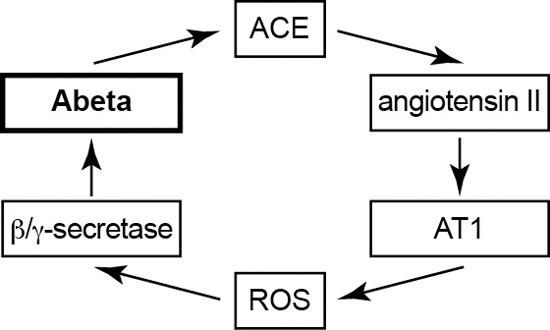From-heart-to-brain
Cardiovascular diseases such as hypertension, atherosclerosis or diabetes are increasingly recognized as important risk factors contributing to the development of neurodegenerative disorders, e.g. vascular dementia or Alzheimer`s Disease.
In agreement with that concept, researchers at MolPharm found that a widely used cardiovascular drug could retard the development of neurodegeneration in an Alzheimer`s Disease model. Data provided evidence that inhibition of the angiotensin-converting enzyme (ACE) by an ACE-inhibitor suppresses the generation of reactive oxygen species (ROS), which is involved in neurodegeneration and amyloid beta (Abeta) generation.
The angiotensin-converting enzyme ACE seems to be part of a vicious cycle of angiotensin II AT1 receptor-mediated amyloid beta (Abeta) generation.
We are currently exploring molecular mechanisms linking cardiovascular targets to the pathogenesis of neurodegeneration.
Links to relevant publications of our group:
